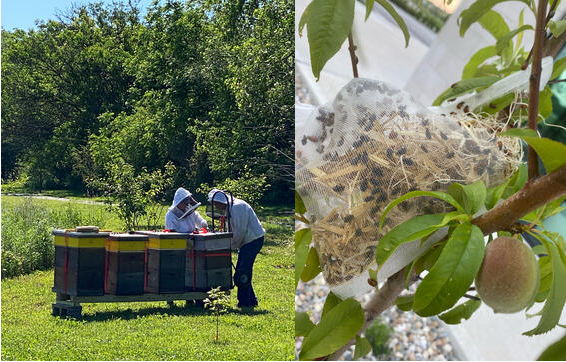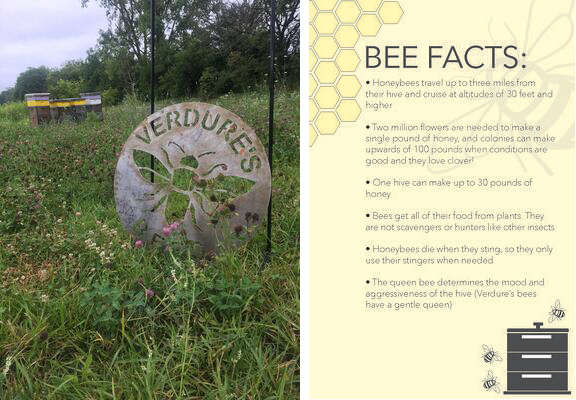New Additions To The Natural Wetlands At Verdure Global HQ
New Additions To The Natural Wetlands At Verdure Global HQ
In 2018, Verdure proudly celebrated the opening of our global headquarters in Noblesville, Indiana, USA. In choosing a location for our headquarters, we considered it vital to select a site that would also afford an opportunity to promote local flora and fauna through a natural habitat, focusing on giving back to our community with a sustainable home for Verdure.
As part of our ongoing mission to support sustainability and ethical business practices, we have continued to further this initiative, which has included planting edible and non-edible native trees and plants including a small organic garden that utilizes “good” insects such as praying mantis and lacewings to control plant damaging pests.
Certified Wildlife Habitat
In spring 2020, Verdure’s HQ received certification through the National Wildlife Federation as a Certified Wildlife Habitat. Verdure strategically planted a wide variety of native botanicals known to be pollinator friendly. These include serviceberry, apple, pawpaw, blackberry, persimmon, as well as non-fruiting trees such as red maple and several evergreens. To support pollinators in the area, flowering plants were specifically chosen to include butterfly and bee-friendly flowers. “I was determined to take on the challenge and demonstrate native plantings can be used in corporate landscape to meet city planning requirements of design while adding visual and nourishing well-being to employees and the environment,” stated Sonya Cropper, VP of Marketing & Innovation. She went on to explain, “Although small in size, this concept in corporate landscape can make an impact. As a company founded in botanicals that support wellness, we must be advocates and stewards of a healthy environment.”
A New Home for Pollinators and Plant Protecting Insects
In June 2020, we introduced four beehives. We chose to host beehives from Seib’s Hoosier Honey based on their immense knowledge and advocacy for healthy bee populations. Bees are not only important for the environments in which they live, but also play an integral part in the ecosystem, aiding in pollination. These bees directly impact our food supply.

“It is exciting to see this all come together as we work toward a more expansive program to give back to our employees, support the natural environment, and maintain sustainable grounds. We felt it was important for the corporate culture to truly make a difference not only for our employees, but also for the Noblesville/Hamilton County community as good corporate citizens. We are always trying to set an example in how we embody corporate responsibility not only for our community but for our environment,” stated Ajay Patel, Founder & CEO of Verdure.
In addition to new beehives, Verdure has also introduced ladybugs, lacewings, and praying mantis egg pods. Ladybugs are known to consume plant-eating insects and help to protect plants and our garden from damaging invaders. Lacewings and praying mantis, which when mature, will feed on moths, mosquitoes, roaches, flies, aphids, and more, enabling healthy plants, vegetables, and fruits without the use of harmful pesticides or herbicides.
The Verdure Garden: VS Cares
Each year, Verdure maintains a garden of fruits, vegetables and herbs, which are shared with the Verdure team as a small part of Verdure Cares. Our 2020 garden is currently growing sweet corn, cantaloupe, broccoli, red blood turnips, peas, tomatoes, okra, basil, peppermint, spearmint, zucchini, pumpkin, lettuce, potatoes and much more!
We continuously work to expand this effort with raised garden beds outdoors and an onsite greenhouse co-located with our Wellness Building. Additionally, our garden is naturally supported through our good bug nursery to handle pests as opposed to harsh pesticides.
Accreditations for Ongoing Efforts
Through the combined efforts of maintaining the natural wetland and promoting flourishing native flora and fauna, Verdure has received a number of accreditations.
Verdure and our global headquarters has been recognized as a Million Pollinator certified site through the Million Pollinator Challenge by the Pollinator Partnership, which describes itself as ‘A nationwide call to action to preserve and create gardens and landscapes that help revive the health of bees, butterflies, birds, bats and other pollinators across America’ as well as a platform to ‘make a connection between pollinators and the healthy food people eat’.
Verdure has also secured acres of native maple in certified forests in Indiana in our continued efforts to promote land and tree conversation and promote a healthy population of flora and fauna.

Stay Connected
Stay tuned in to our social channels for ongoing efforts, pictures and updates, as well as how we continue to expand our internal programs and giveback to our employees and the community! †
† These statements have not been evaluated by the Food and Drug Administration. This product is not intended to diagnose, treat, cure or prevent any disease.
In 2018, Verdure proudly celebrated the opening of our global headquarters in Noblesville, Indiana, USA. In choosing a location for our headquarters, we considered it vital to select a site that would also afford an opportunity to promote local flora and fauna through a natural habitat, focusing on giving back to our community with a sustainable home for Verdure.
As part of our ongoing mission to support sustainability and ethical business practices, we have continued to further this initiative, which has included planting edible and non-edible native trees and plants including a small organic garden that utilizes “good” insects such as praying mantis and lacewings to control plant damaging pests.
Certified Wildlife Habitat
In spring 2020, Verdure’s HQ received certification through the National Wildlife Federation as a Certified Wildlife Habitat. Verdure strategically planted a wide variety of native botanicals known to be pollinator friendly. These include serviceberry, apple, pawpaw, blackberry, persimmon, as well as non-fruiting trees such as red maple and several evergreens. To support pollinators in the area, flowering plants were specifically chosen to include butterfly and bee-friendly flowers. “I was determined to take on the challenge and demonstrate native plantings can be used in corporate landscape to meet city planning requirements of design while adding visual and nourishing well-being to employees and the environment,” stated Sonya Cropper, VP of Marketing & Innovation. She went on to explain, “Although small in size, this concept in corporate landscape can make an impact. As a company founded in botanicals that support wellness, we must be advocates and stewards of a healthy environment.”
A New Home for Pollinators and Plant Protecting Insects
In June 2020, we introduced four beehives. We chose to host beehives from Seib’s Hoosier Honey based on their immense knowledge and advocacy for healthy bee populations. Bees are not only important for the environments in which they live, but also play an integral part in the ecosystem, aiding in pollination. These bees directly impact our food supply.

“It is exciting to see this all come together as we work toward a more expansive program to give back to our employees, support the natural environment, and maintain sustainable grounds. We felt it was important for the corporate culture to truly make a difference not only for our employees, but also for the Noblesville/Hamilton County community as good corporate citizens. We are always trying to set an example in how we embody corporate responsibility not only for our community but for our environment,” stated Ajay Patel, Founder & CEO of Verdure.
In addition to new beehives, Verdure has also introduced ladybugs, lacewings, and praying mantis egg pods. Ladybugs are known to consume plant-eating insects and help to protect plants and our garden from damaging invaders. Lacewings and praying mantis, which when mature, will feed on moths, mosquitoes, roaches, flies, aphids, and more, enabling healthy plants, vegetables, and fruits without the use of harmful pesticides or herbicides.
The Verdure Garden: VS Cares
Each year, Verdure maintains a garden of fruits, vegetables and herbs, which are shared with the Verdure team as a small part of Verdure Cares. Our 2020 garden is currently growing sweet corn, cantaloupe, broccoli, red blood turnips, peas, tomatoes, okra, basil, peppermint, spearmint, zucchini, pumpkin, lettuce, potatoes and much more!
We continuously work to expand this effort with raised garden beds outdoors and an onsite greenhouse co-located with our Wellness Building. Additionally, our garden is naturally supported through our good bug nursery to handle pests as opposed to harsh pesticides.
Accreditations for Ongoing Efforts
Through the combined efforts of maintaining the natural wetland and promoting flourishing native flora and fauna, Verdure has received a number of accreditations.
Verdure and our global headquarters has been recognized as a Million Pollinator certified site through the Million Pollinator Challenge by the Pollinator Partnership, which describes itself as ‘A nationwide call to action to preserve and create gardens and landscapes that help revive the health of bees, butterflies, birds, bats and other pollinators across America’ as well as a platform to ‘make a connection between pollinators and the healthy food people eat’.
Verdure has also secured acres of native maple in certified forests in Indiana in our continued efforts to promote land and tree conversation and promote a healthy population of flora and fauna.

Stay Connected
Stay tuned in to our social channels for ongoing efforts, pictures and updates, as well as how we continue to expand our internal programs and giveback to our employees and the community! †
† These statements have not been evaluated by the Food and Drug Administration. This product is not intended to diagnose, treat, cure or prevent any disease.
About Verdure Sciences®:
Verdure Sciences manages ingredient innovation throughout the integration of supply network, production, and research platforms. With an expanding pipeline of proprietary, standardized botanical ingredients supported by pharmacokinetic, pharmacodynamic, and clinical research profiles, we work toward our unified vision to offer safe, effective ingredient solutions. Verdure Sciences® is a registered trademark of Verdure Sciences®, Inc.
For our most current patent and trademark information, please visit: https://vs-corp.com/ip/ | https://vs-corp.com for more information
About Verdure Sciences®:
Verdure Sciences manages ingredient innovation throughout the integration of supply network, production, and research platforms. With an expanding pipeline of proprietary, standardized botanical ingredients supported by pharmacokinetic, pharmacodynamic, and clinical research profiles, we work toward our unified vision to offer safe, effective ingredient solutions. Verdure Sciences® is a registered trademark of Verdure Sciences®, Inc.
For our most current patent and trademark information, please visit: https://vs-corp.com/ip/ | https://vs-corp.com for more information


